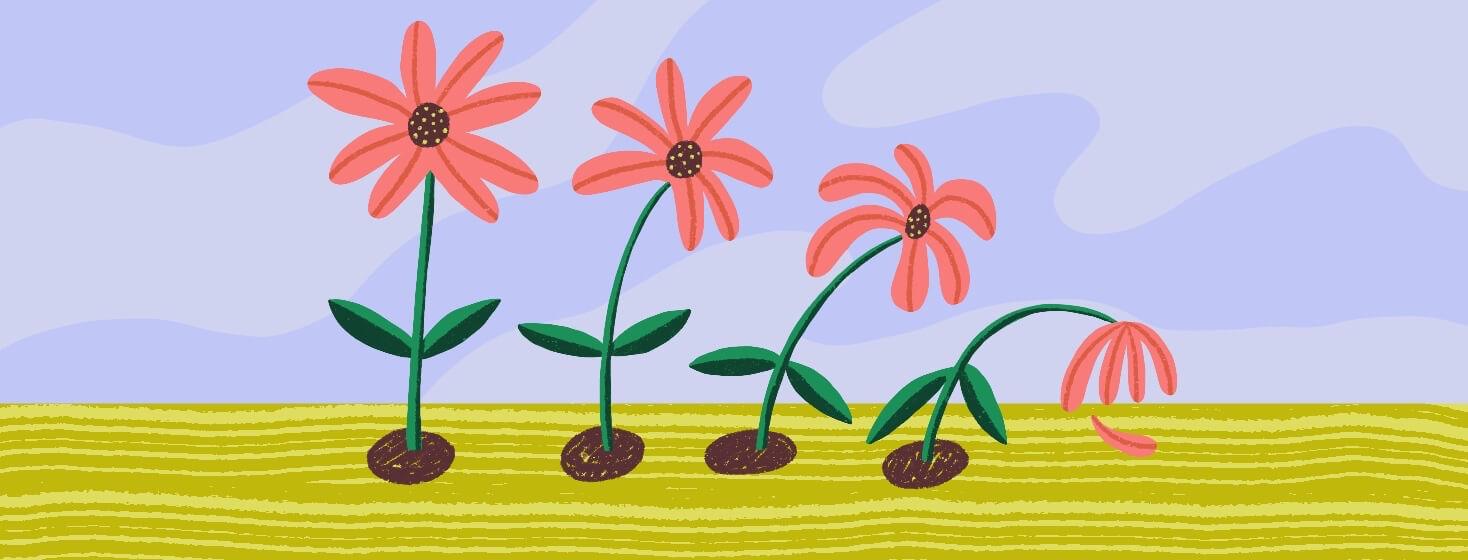End-Stage COPD: Understanding The Signs and Symptoms
Recently, someone in our COPD community asked, "How do you know when the end is near with COPD?" It's a valid question and one that may be somewhat frightening for both people with COPD and their caregivers.
Condition progression with COPD
COPD is generally a long, progressive illness. Most people slowly decline over a period of years. But everyone's experience with COPD can be slightly different. So much depends on your overall health history, your will to keep living a quality life, and how well you respond to treatment.
But most people progress through these 4 stages:1
- Stage 1 (Mild) There are few, if any symptoms, and you may not even be aware there is a problem.
- Stage 2 (Moderate) Respiratory symptoms become severe enough and persistent enough that you see a doctor about them. This is the stage where most people are diagnosed.
- Stage 3 (Severe) Shortness of breath flare-up is frequent and symptoms begin to interfere markedly with daily activities of living and your quality of life.
- Stage 4 (End Stage) Symptoms interfere with all of your activities; flare-ups occur frequently and you have chronic respiratory failure.
End stage COPD does not necessarily mean end of life
End-stage COPD simply means you have reached the final stage of the changes in your respiratory system that go along with COPD. It doesn't mean that you are at the end of your life right now. In fact, most people linger in the "end stage" for months, if not years.
But it does mean that both you and any caregivers should begin to prepare for the end of life. It's time to put your affairs in order and resolve anything that needs to be resolved. Because eventually the end will come, and you'll want to be prepared.
What are the physical symptoms of end-stage COPD?
As I said, everyone's experience will be slightly different, but there are some physical changes that can give you a clue that the end may be approaching soon. In some ways, the symptoms are simply a matter of intensifying.2
Breathlessness becomes more constant
You may notice that after each flare-up, lung function doesn't quite return to where it was before the flare-up. There may be more frequent respiratory infections. Also, the decline in breathing may accelerate toward the end.
More difficulty catching your breath
It may become difficult to catch your breath with even the slightest movement or with any type of activity. Despite how hard it becomes to breathe, you should not fear that you'll suffocate to death. For one thing, supplemental oxygen can help relieve breathlessness to some extent even during the latter stages of COPD.
Increased fatigue
you may find that you are extra tired. Eating may become so tiring that you eat less, and you lose weight. Some people have so little energy and endurance that they become bedbound.
Incontinence
Besides the COPD symptoms already mentioned, you might find it increasingly difficult to go to the bathroom, resulting in constipation and/or incontinence.
Poor circulation
There can also be poor circulation with cold feet and hands, as well as an increasing weakness.1
Signs of worsening COPD
In addition, as you or your loved one becomes more isolated due to activity tolerance or dependence on oxygen, anxiety, and depression can set in. Because of these mental and physical changes, you may start sleeping for longer and longer periods, which can further isolate you.1,2
Complications such as heart disease or serious respiratory infections also become more likely as your lungs deteriorate. In fact, these are more common causes of death in people with COPD than the COPD itself.
In the final days, the person with COPD may withdraw, not talking, eating, drinking or moving much. There may be changes in the breathing patterns, such as long pauses between breaths. The skin may become pale and cool.2
Your healthcare team can help
COPD is eventually a terminal illness. Your doctor can help you live the best quality of life for as long as possible, provided you talk with him or her. Consider asking questions like these about end of life care:
- Are there medicines that can help ease my symptoms so that the end is easier?
- Should I change how I use my oxygen? (Some people benefit from assisted ventilation at the end)
- Would home care or hospice care be the right option for me?
You'll also need to think about how aggressive you want treatment to be at this stage. It's good to work with your doctor and caregivers to put those wishes into writing so that everyone is on the same page.
Everyone experiences COPD differently
Exactly how the end will feel may be different for each of us, but hopefully, this post has given you some idea of what to expect. You might also find that my post, "Understanding and Coping With End-Stage COPD" will be helpful as you navigate the final months, weeks or days of life.


Join the conversation